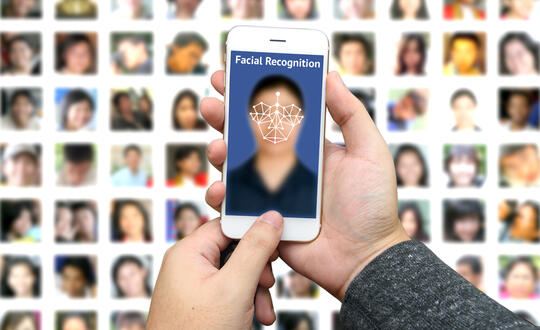Singapore Captures Citizen Faces to Manage Daily Life
Oct 22 2020
Facial recognition technology has been controversial lately, as governments struggle with how to use this powerful tool. The city-state of Singapore has begun to build face placing detectors into the very fabric of society – the system that facilitates interaction with both the government and private sector.
Singapore currently has an advanced digital identity program called “SingPass” which allows users to verify their identities online and transact with various government agencies and particular private sector entities like banks and healthcare institutions. In total, residents can access more than 400 digital services that range from public housing to gaining access to tax returns. Access to SingPass has required a password.
Singapore's Government Technology Agency (“GovTech”) was receiving over 150,000 password reset requests a month. A significant change will make passwords unnecessary. GovTech will be integrating a new facial verification feature into SingPass. Singapore made a $1.75 billion dollar investment in smart technology six years ago in an effort to modernize public efforts. Singapore is already a world leader in wireless connectivity. SingPass Face Verification will function on home computers, tablets, cell phones, and public kiosks.
Facial recognition technology leverages biometrics to map facial features to verify identities, delving into the geometry of an individual’s face. For example, it measures the distance between a “person's eyes and the distance from their forehead to their chin.” These metrics create a "facial signature" which is compared to a database of known facial signatures.
SingPass has a mobile application. Singapore’s housing board (“HDB”) processed more than 53 million transactions online in 2019, which accounts for 99 percent of all its transactions. This change certainly reduces user friction, but also provides insight into how encompassing this biometric data capture is.
GovTech posits that this use of facial recognition technology is being integrated as a means to reduce the potential of deepfakes, and insists that the data that is collected is "purpose-driven.” The purpose is the particular transaction being processed. GovTech further claims that the facial recognition data would only be stored on secured government servers for thirty days. In trying to comfort concerned residents, GovTech claims that this data would not be shared with the private sector. However, there are reports that banks have tested SingPass’ facial recognition technology as recently as this summer.
We have seen governments take different approaches to facial recognition technology. After seeing the Chinese government use facial recognition as a law enforcement tool to subject more citizens to the criminal justice system for petty crimes, American cities have become resistant to enabling government use of this technology. Many have expressly prohibited police departments from using this technology for fear of invading an individual’s privacy. We recently wrote about Portland even curtailing private use of the technology.
Consumers are used to having devices that integrate facial recognition technology to access services quickly. Many mobile devices and mobile applications provide users the option to bypass password inputs for facial recognition. Giving a government universal access to residents’ biometrics may test consumer sensibilities that balance technology friction and privacy. As in so many things that combine technological tracking in an allegedly free society, Singapore will be leading the way.